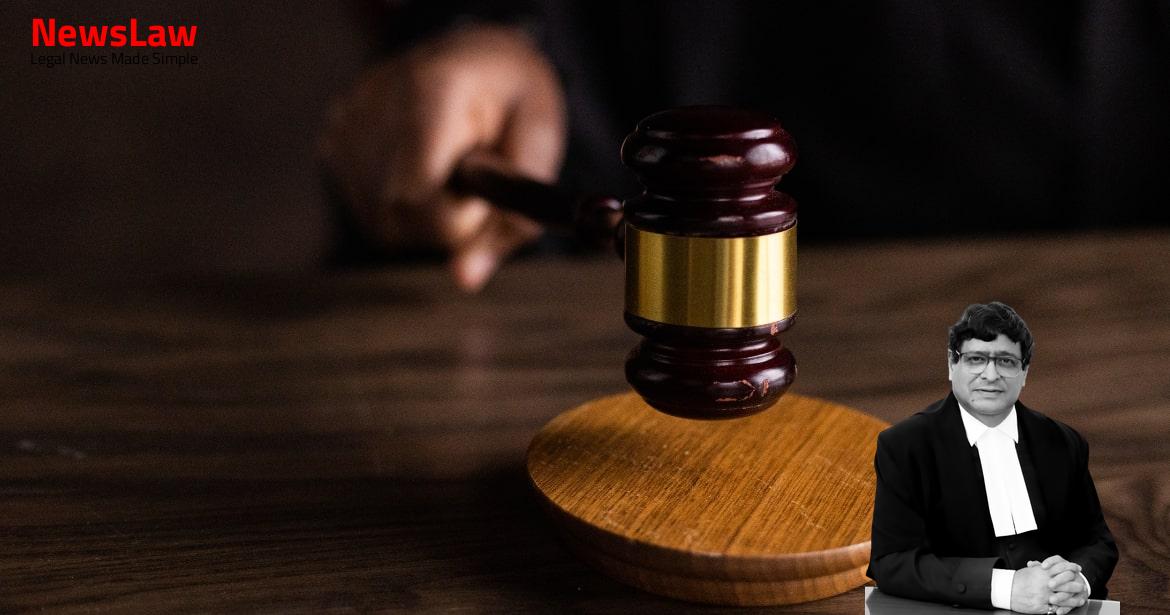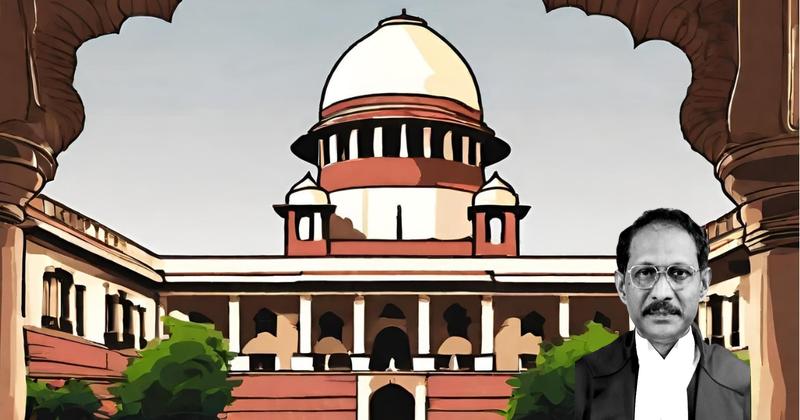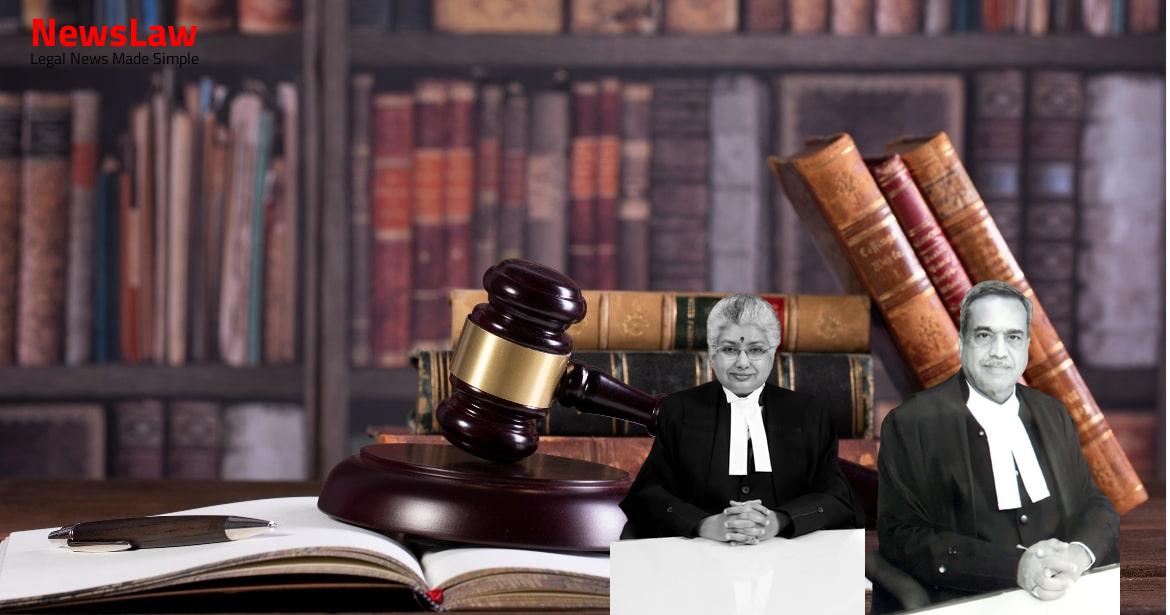Explore the intricacies of a significant land dispute case involving Chandar Bhan (the appellant, represented through LR Sher Singh) and Mukhtiar Singh & Others (the respondents). Delve into the legal complexities surrounding the execution of a land agreement, subsequent injunction, and the disputed transactions. Unravel the Supreme Court’s judgment, which addresses issues of lis pendens, bona fide purchasers, and equitable remedies in land disputes.
Facts
- Appellant and Defendant entered into an agreement to sell for 16 ‘Kanals’ of land.
- Total consideration was Rs. 8 lakhs, with Rs. 2.50 lakhs paid upfront.
- Remaining Rs. 5.50 lakhs was to be paid at the time of the execution of the sale deed.
- The sale deed was to be executed on or before 10.11.2004.
- Trial Court did not accept objections raised by the defendants.
- The suit for permanent injunction was ultimately dismissed as withdrawn, rendering the temporary injunction order moot.
- High Court considered the respondents as bonafide purchasers and protected them under Section 41 of the Act of 1882.
- High Court reversed judgments of lower courts, granting relief of refund of earnest money to the appellant with interest.
- High Court upheld findings of execution of agreement to sell and the payment of earnest money by the appellant.
- High Court dismissed the specific performance suit but provided partial relief by returning earnest money to the appellant.
- PW-7 did not admit informing respondents about the injunction order, leading to alternate relief granted by the High Court.
- Appellate Court rejected the defense of bonafide purchaser, alleging collusion among respondents.
- Punjab and Haryana High Court allowed the Second Appeal filed by the respondents, challenging the previous decisions.
- Trial Court noted breach of privileged communication by PW-7 and the temporary injunction lost its effect upon dismissal of permanent injunction suit.
- Respondents 1-2 denied awareness of the injunction order, and the Release Deed was executed on the same day as the injunction order.
Also Read: Swami Satyanand vs. Swami Vedvyasanand – Legal Representative Substitution Case
Arguments
- The petitioner argued that the witness had never informed them about the injunction order in favor of the appellant.
- The counsel for the respondent failed to provide any legal provision or precedent to show that the vendor of a litigant, who becomes a bona fide purchaser during the pending litigation, is not entitled to protection under Section 41 of the TP Act.
- The release deed in favor of defendant No 2 and sale deed in favor of the appellants were dependent on the outcome of the injunction suit, which was eventually dismissed.
- Mr. Narender Hooda, Sr. Advocate for the respondents, argued that due inquiries were made about the suit property by respondents 1-2, but the revenue records did not indicate the execution of another agreement in favor of the appellant.
- Service by publication was done for respondents 3 and 4, but they did not appear. Respondents 1-2 have been in possession of the property since 2004, renovating the land and installing a pump.
- The transaction regarding the suit property was executed by the respondents after the appellant obtained a temporary injunction from the Trial Court.
- The entire transactions would be affected by lis pendens under Section 52 of the Act of 1882.
- Respondent 3 and 4 did not appeal against the judgments of the lower courts, indicating collusion between the respondents.
- Mr. Rameshwar Singh Malik, representing the appellant, argued that the High Court erred in reversing the concurrent findings of the lower Courts.
Also Read: Resolving Legal Entanglements: A Case Study of Raj Reddy Kallem vs. The State of Haryana & Anr.
Analysis
- The appellant filed a suit for permanent injunction on 21.07.2003 and obtained an order of temporary injunction on 28.07.2003.
- The sale deed executed during the operation of the temporary injunction order does not render the transaction void ab initio.
- Proceedings under Order 39 Rule 2A of the Code can be initiated by the aggrieved party for violations of an injunction order.
- The High Court upheld the findings that the agreement to sell in favor of the appellant was duly proved.
- The release deed executed after the filing of the suit for injunction by the appellant would be covered by the doctrine of lis pendens.
- The principle of lis pendens is recognized based on equity and good conscience, even if Section 52 of the Transfer of Property Act is not strictly applicable.
- The pendency of a suit is deemed to have commenced from the date on which the plaintiff presents the suit.
- The alienation made by the respondents cannot operate against the interests of the appellant considering the order of temporary injunction obtained by the appellant.
- Section 52 of the Act of 1882 governs the principle of lis pendens.
- The provision restricts the transfer or dealing of immovable property during the pendency of a suit where the right to such property is in question.
- The period of pendency starts from the filing of the suit and continues until a final decree or order is obtained and satisfied.
- The objective of lis pendens is to maintain the status quo and prevent multiple proceedings in different forums.
- In the case of Kanshi Ram v. Kesho Ram, the Punjab and Haryana High Court mentioned that the explanation to Section 52 is based on equity and good conscience.
- The Release Deed dated 28.07.2003 and Sale Deed dated 16.06.2004, both executed by specific parties, were deemed to be without legal sanctity.
- A recent case of Shivshankara and Another v. H.P. Vedavyasa Char highlighted that even if Section 52 of the Transfer of Property Act may not directly apply, the principle it contains can still be applicable.
- Various judgements like Rajendra Singh v. Santa Singh, Dev Raj Dogra v. Gyan Chand Jain, and Sunita Jugalkishore Gilda v. Ramanlal Udhoji Tanna have provided relevant insights into the application of property laws.
- The Transfer of Property Act of 1882 is generally not applicable in states like Punjab, Delhi, or Bombay, with some exceptions.
- The defence of bonafide purchasers for valuable consideration under Section 41 of the Act of 1882 can be rejected if transactions are invalidated due to the doctrine of lis pendens.
- Parties bound by doctrine of lis pendens cannot claim protection as bonafide purchasers for valuable consideration.
- Subsequent purchasers are bound by lis pendens and cannot claim bonafide purchaser status even if unaware of injunction order.
- Investments or alterations made to the property by respondents 1-2 cannot grant them any compensation or stake against the property due to the temporary injunction order.
- Alienation made by respondents 1-2 during the time of the injunction cannot disadvantage the appellant.
Also Read: Chandan v. State of Delhi: Eyewitness Testimony and Circumstantial Evidence
Decision
- Respondent no. 3 directed to accept balance sale consideration of Rs.5,50,000
- Respondent no. 3 directed to execute agreement to sell dated 10.11.2002 in favour of the appellant
- Time limit of 3 months given for execution of agreement
Case Title: CHANDER BHAN (D) THROUGH LR SHER SINGH Vs. MUKHTIAR SINGH (2024 INSC 377)
Case Number: C.A. No.-002991-002991 – 2024



